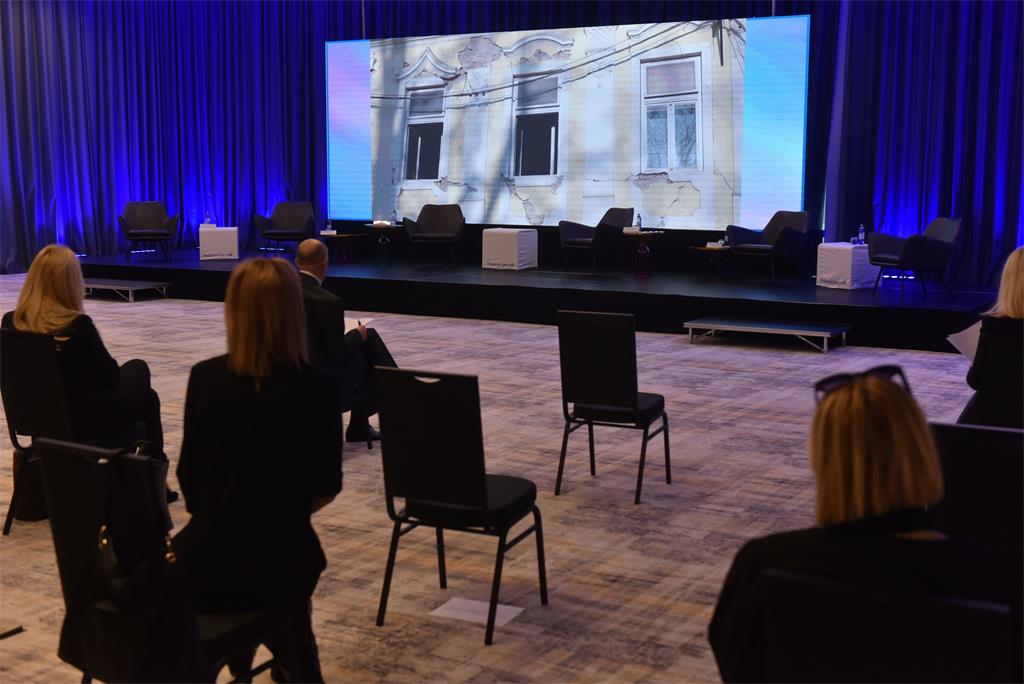01.03.2021.
As part of the conference entitled “Renovation and revitalisation” organised by the business magazine Poslovni dnevnik, a panel discussion was held on the topic of renovation of the areas hit by the earthquake, and the possibilities of the Croatian construction sector to reply to the challenges they are facing.Head of the Department for Environmental Protection Jadranka Rajić Bradvica pointed out that before the renovation of the buildings could start, first the waste following the earthquake had to be disposed of, for which the Environmental Protection and Energy Efficiency Fund allocated HRK 50 million. As part of this action, to utility companies in the area of Sisak-Moslavina County the Fund co-finances the collection, transport, separation and treatment of waste, as well as the procurement of the necessary equipment to collect this waste separately.
The aim is to dispose of this waste in accordance with the circular economy principles, which implies recycling and further use of part of the collected materials. Regardless of the fact that this material no longer fulfils its original function, it could be us as valuable raw material, said Mrs Bradvica. She also advocates the renovation of the damaged buildings in such a way as to take account of energy efficiency and use of renewable energy sources.
In the case of Zagreb, the situation is rather more complicated. There are many protected buildings that were damaged, mainly in the town centre, where the experts advise collective renovation of entire neighbourhoods, instead of individual “dotted” renovation.
One of the participants at the conference was the minister of construction, physical planning and state assets, Darko Horvat, who pointed out that the estimated damage caused by the earthquake in Zagreb amounted to HRK 86 billion, of which HRK 42bn investments were planned. He added that damage estimates in Banovina would not be far from these figures.
“We have spent a lot of time to set up good regulatory framework so that the renovation process could run transparently and smoothly. We had to regulate how the resources from EU funds will be withdrawn and used, as well as resources from donations and the State budget, so that it is all fair and transparent. Preparatory activities have been completed and public calls will be launched. In the past six months we have set up the system for withdrawing the money from EU funds, which would usually take 2.5 years. Italy, after disastrous earthquake several years ago, withdrew significant funding from the same mechanisms that Croatia will employ now, but because their system was not set up properly, a significant portion of this money had to be paid back to Brussels,” said Minister Horvat, and emphasised that professionals should call the shots.


